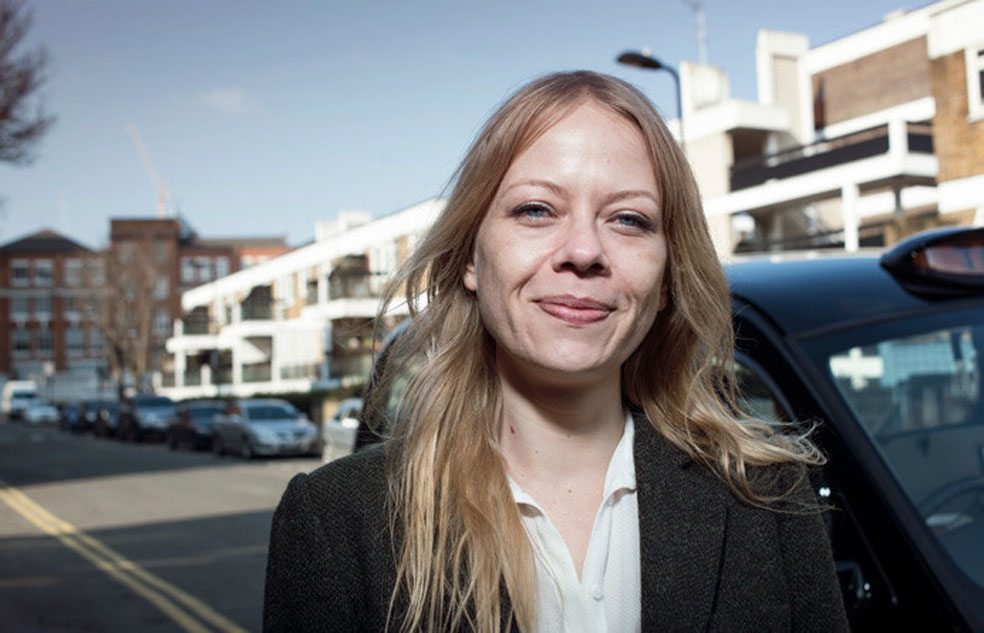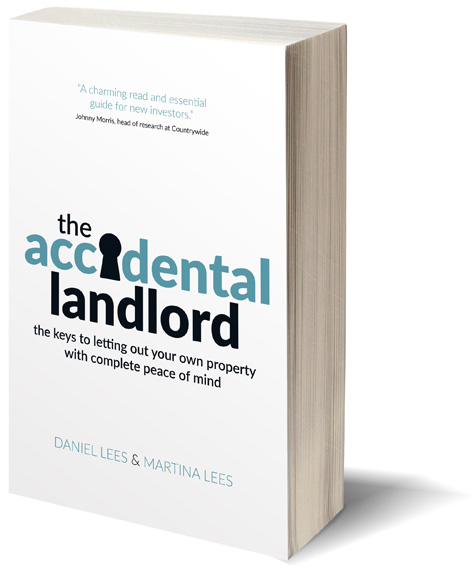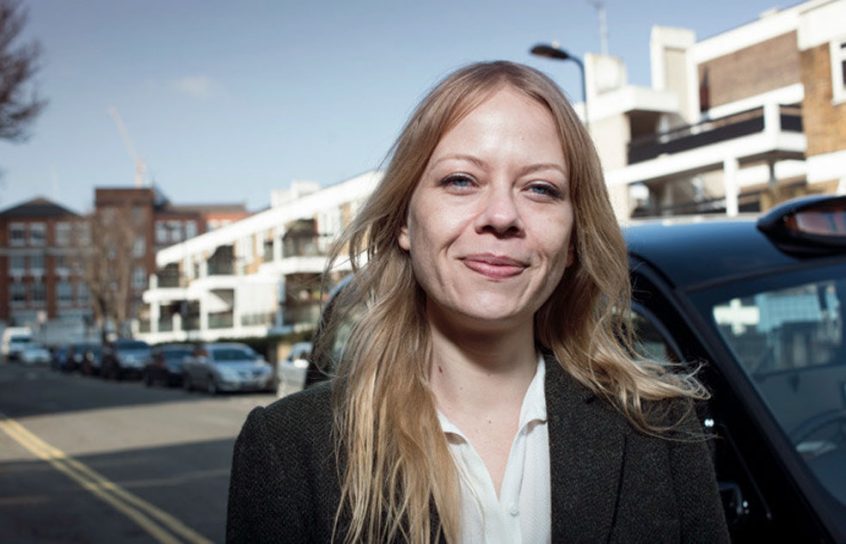
Green with envy? Sian Berry is still renting at 42
The Green Party’s Sian Berry is a long-term renter who wants a union to protect tenants from bad landlords
Sian Berry is 42, yet has no room to display her handmade retro-print scatter cushions. “I like my cushions — I made them. But I don’t have enough sofas.” That’s because the Green Party politician, who came third in this year’s mayoral election, behind Sadiq Khan and Zac Goldsmith, lives in a rented studio above a shop on a busy high street in north London.
“I’ve rented for exactly half my life,” she concludes, after adding up the years spent in six successive tenancies. At least she doesn’t need a bucket to flush the loo today, as she did when we met three months ago. Nor is her linoleum floor in the bathroom collapsing because of a shower leak. “It’s quite nice in there right now.”
Berry’s online survey of 1,530 self-selected private tenants in London, published tomorrow, found that 91% had suffered four or more renting problems. “Few people go through the private rented sector unscathed.”
Her answer? She wants the new mayor to seed-fund a renters’ union that provides “professional advice when you need it”. Nearly six out of 10 renters who answered her survey said they would pay to join such an organisation: “It can be self-sustaining.” The services most people said they would be interested in were powers to investigate bad landlords and lettings agents, through, for example, “secret shoppers”; help with claiming back rent; and campaigning to change government policy.
Vie Compton is one rentysomething who would join up. He says his landlord in Brent, northwest London, refused to do repairs because the three-bedroom house was overcrowded “to make our bills cheaper. The shower in the upstairs bathroom leaked into the kitchen, onto and via the electrics, often making the lights cut out.”
New findings from the Royal Institution of Chartered Surveyors suggest that the situation for renters could get worse. Despite the need for an extra 1.8m rented homes by 2025, 86% of landlords have no plans to increase their rental portfolio this year. They won’t have been encouraged by the failure on Thursday of a campaign led by Cherie Blair to get permission for a judicial review of new rules banning buy-to-let owners from deducting mortgage interest from their taxable profit.
Exclusive research by the credit-checking agency Experian shows that 21% of private tenants have been renting for 10 years or more. The representative survey of 1,470 renters found that almost half stayed at each rental home for only one to three years.
Berry has been in her studio in Tufnell Park for four years, yet still feels in transit. “I haven’t really tidied,” she apologises when she opens her front door, partly blocked by boxes of campaign leaflets and her fold-up Brompton bicycle. Inside, it’s a jumble of mistletoe fairy lights, clothing and cat litter for Archie, her rescue tom. “See how much stuff I have,” she says. “Why would I get rid of it because I live in a small place?”
Yet the rent swallowed almost half her pay at the Campaign for Better Transport — equivalent to a teacher’s salary — when she moved in. Renting has got “stupidly more expensive” since she moved to London in 1997, sharing a turreted house in Archway with five others. A framed photo of that home adorns her stairway. “It went downhill from there.”
Despite earning at least £65,000 a year as a London Assembly member and Camden councillor — who therefore has to live in the borough — Berry has little hope of buying her own place. She is “on the cusp” of the divide between the have-properties and the have-nots. “Those of us who have bought in their twenties are now in their third or fourth house. Those who just left it are now wondering, ‘Do I save for retirement or for a home?’”
One in six tenants would struggle to afford even a 1% rent increase — £7.79 extra, based on the average monthly payment in Britain — according to an exclusive study by TheHouseShop.com. “This is especially worrying and demonstrates how we could quickly find ourselves in a precarious position,” says Nick Marr, co-founder of the property classifieds site.
By comparison, its YouGov poll of more than 1,000 renters and mortgage holders found that a 1% increase in home loan payments would be unaffordable for only one in 33 owners. More than one in four renters could not afford a monthly increase of 3%, or £23.37.
Last year, Stephanie, 35, a production artist who asked for her surname to be withheld, spent half her net income on renting an £800-a-month room in a two-bedroom flatshare in Kingston, southwest London. Their lease allowed the lettings agent to raise the rent by 10% a year. “The landlady wanted to keep us, but it was in her contract that if the agency could find somebody who would pay 15% more than we did, we weren’t allowed to stay. We paid a 10% increase the first year, then had to move because we couldn’t keep doing it.”
A quarter of tenants borrow money for their rental deposits, according to Experian, while one in five of those surveyed by Berry had been made temporarily homeless. Compton had friends staying “for a long time because they were made homeless by a bad landlord. Life in London is hard.”
Berry advocates mandatory training for owners of buy-to-let properties, an official website on tenants’ rights and inflation-capped rent increases — akin to those on rail fares. “I’m a private renter,” she says. “We’re becoming more common and we are growing up, but politicians don’t take enough notice of us. It’s a blind spot.”
Archie’s a bit sad his photo didn’t make it into the Sunday Times home section on #BigRenterSurvey, though my first house in Archway did! pic.twitter.com/IHBdmHtvfH
— Sian Berry (@sianberry) October 9, 2016
The Knightsbridge bargain belt
Living a gemstone’s throw from Harrods is only for the rich, right? Wrong, says Marc von Grundherr, head of lettings at Benham & Reeves estate agency, who last month let a one-bedroom flat on Walton Street, near the Knightsbridge shopping mecca, for £480 a week. (Pictured above, it went for £550 a week last year.) That’s not much more than the £460 a week asked for a one-bedder at the swish new Dickens Yard development in Ealing, seven miles west.
“Many renters wouldn’t even consider Knightsbridge,” von Grundherr says. “It’s like walking past a BMW garage. You don’t even go in to ask about the prices, but walk straight on to VW — while, actually, BMW has a great deal on.”
Exclusive figures from the property data company LonRes show that average achieved rents in prime central London stalled between April and September, with a mere 0.2% rise. Those in Zones 2 to 4 increased by almost 6% in the same period.
“People looking to rent in prime central London will still pay more, but the gap has narrowed,” says Marcus Dixon, head of research at LonRes. “Once travel costs (and time) are taken into account, a central property may not be as unattainable as one might expect.”
Yet Lucy Morton, head of residential agency at WA Ellis and JLL, warns that central London rents for homes in “pristine condition” have not fallen — only those for “lower-quality” properties.
This article appeared in The Sunday Times Home on October 9, 2016
The Accidental Landlord
In the post-Brexit world of jittery prices, tax changes and 140-plus landlord laws, this Amazon bestseller tells you how to let out your own property with complete peace of mind.
Get free help


